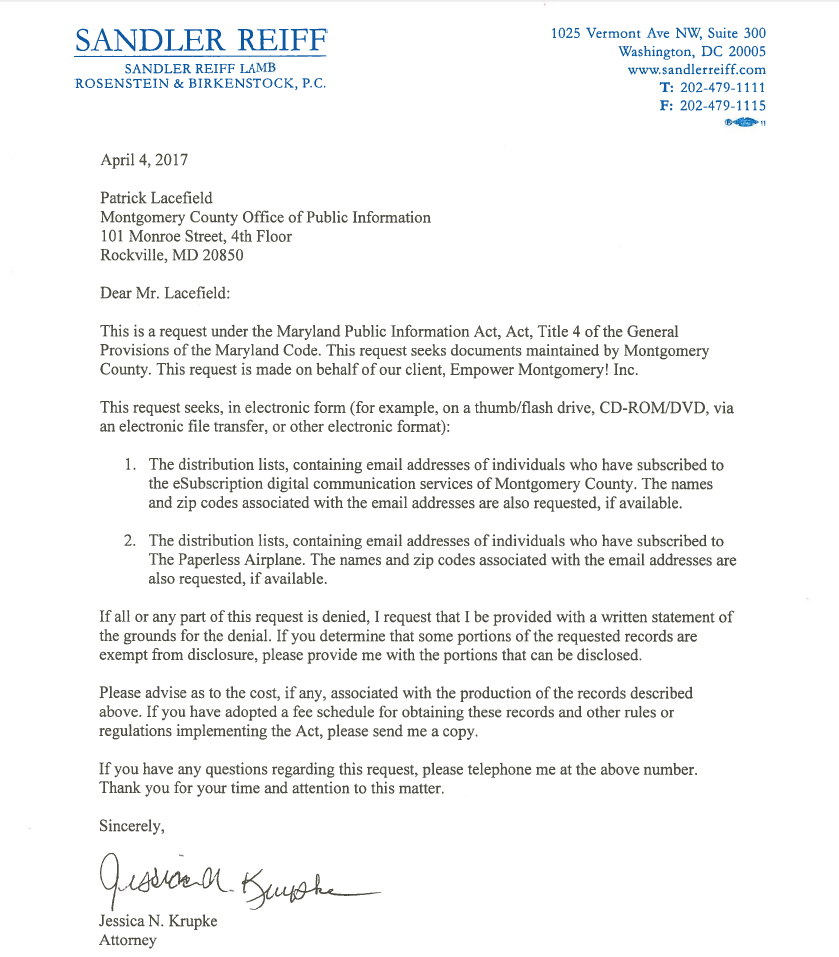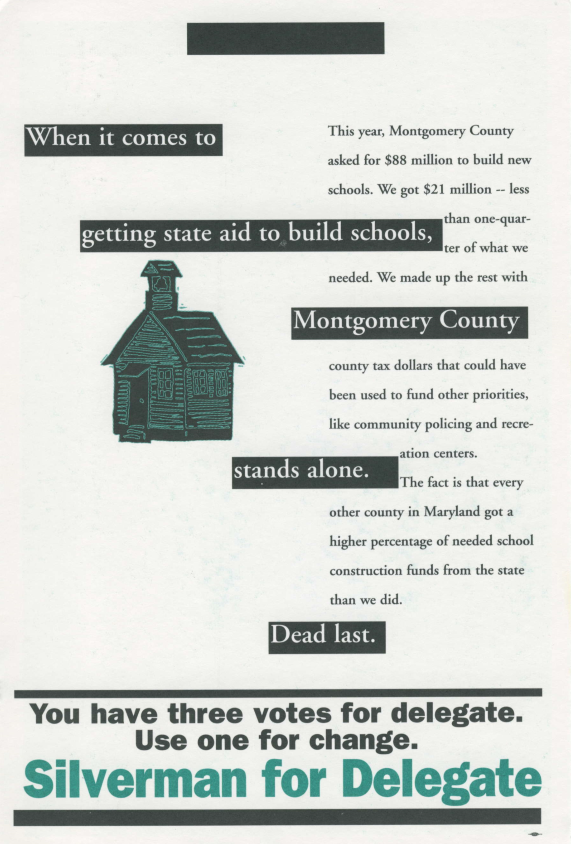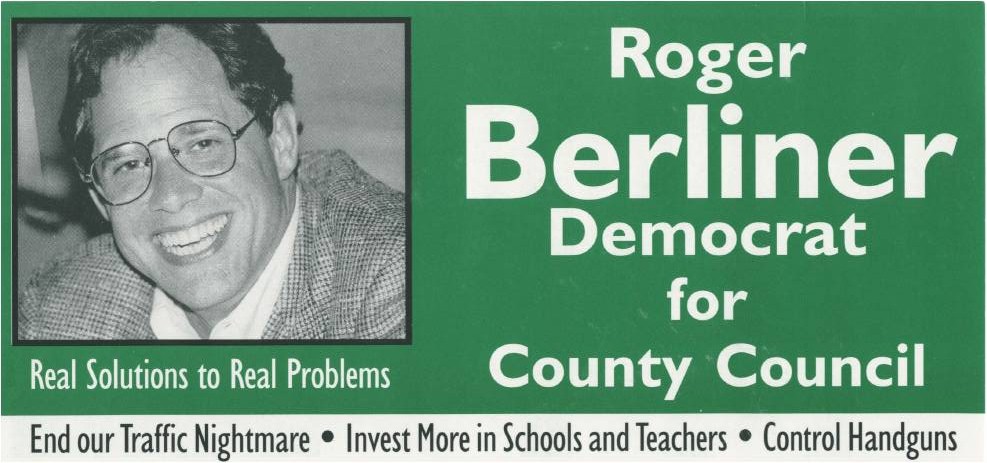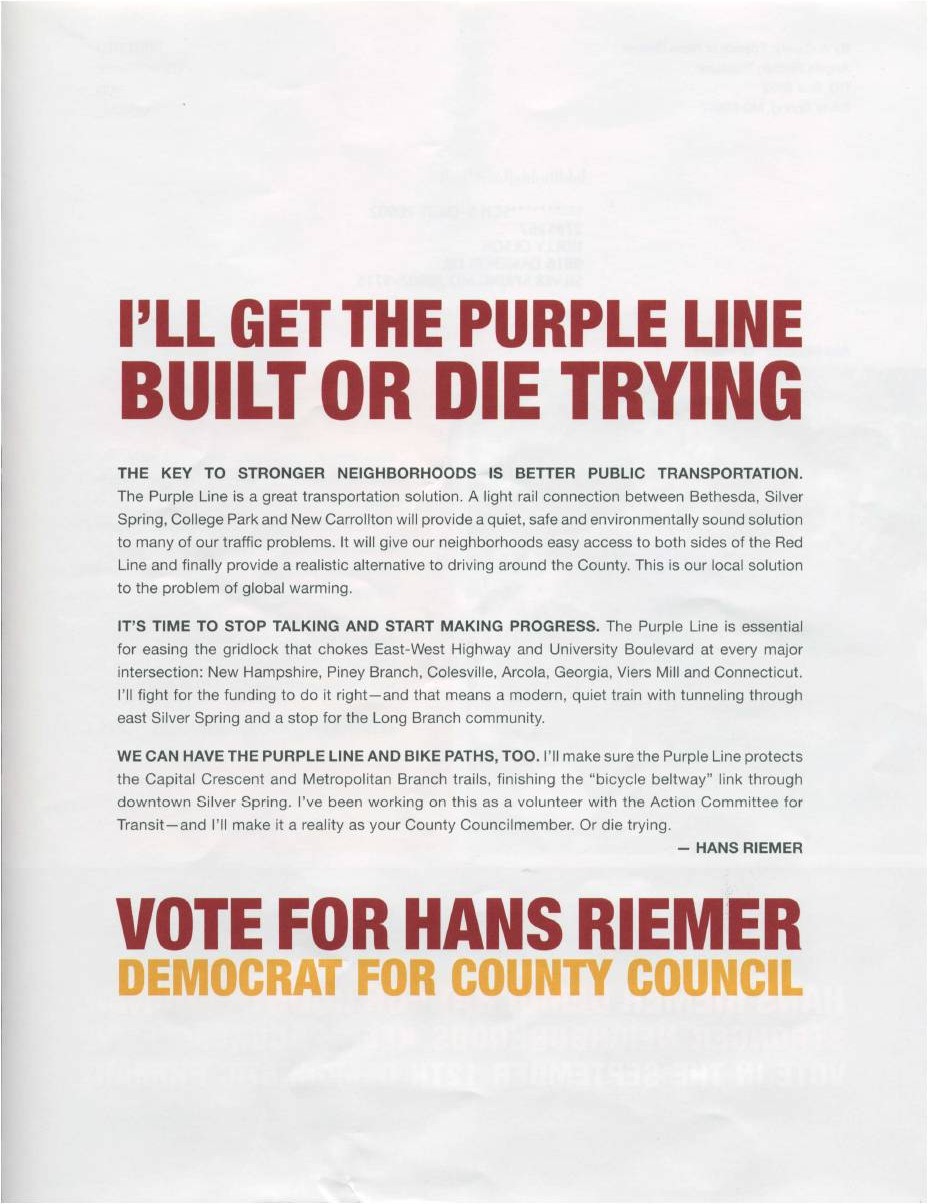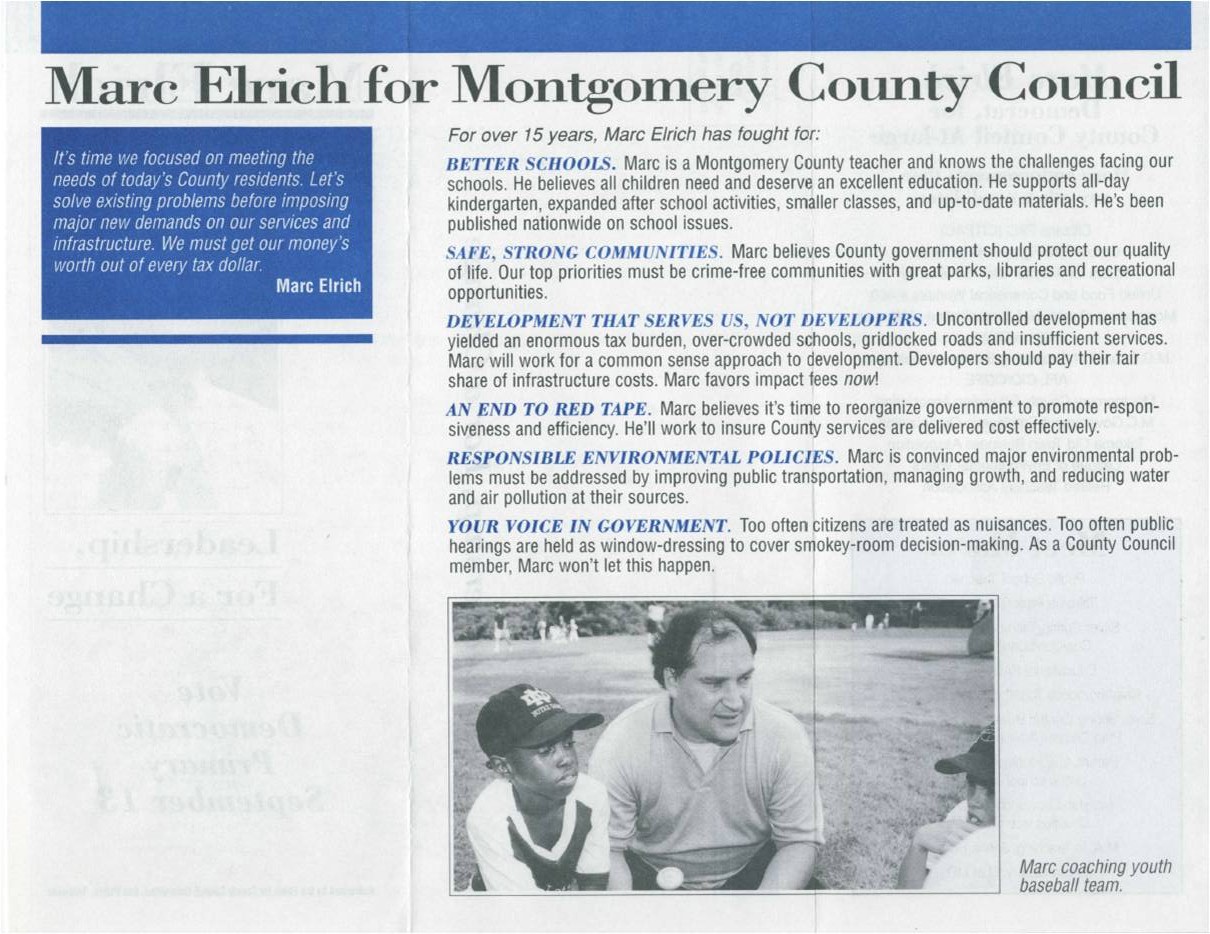By Adam Pagnucco.
In Part One, we spotlighted five losing candidates who went on to be elected to multiple terms on the Montgomery County Council. That illustrates a key point: candidates with electoral experience often come back stronger in future races, even if they lose their first elections. The top tier of potential at-large council candidates includes the following people who have earned lots of votes in prior races for council and the General Assembly and presumably know how to earn them in the future.
Hans Riemer
49,932 votes in the 2014 at-large primary, third place
Your author admits to being partial to Riemer as a former member of his staff. That said, he is the only incumbent in the race as his three current colleagues have been tossed out by term limits. Back in 2010, we ran a series on why MoCo incumbents lose and identified four reasons: they were Republicans, they were lazy, they made lots of enemies (especially in their districts) and they had great challengers. Riemer is not a Republican, he’s not lazy and he has no more enemies than most other local politicians. Great challengers are rare, and because Riemer is the only incumbent running for one of four seats, four great challengers would have to get in to knock him out. That’s just not going to happen. The only certainty in this race is that Riemer will be reelected.
Beth Daly
39,642 votes in the 2014 at-large primary, fifth place
Dickerson activist Beth Daly ran a solid at-large campaign in 2014. Her support crossed over with incumbent Marc Elrich and she got many valuable endorsements from the labor and environmental communities. Daly’s problem had less to do with her and more to do with the field as she was running against four incumbents. So did Riemer in 2010, but he benefited from incumbent Duchy Trachtenberg’s blowing up her relationships with labor and sitting on a huge unspent campaign balance. None of the 2014 incumbents committed mistakes of that magnitude, and Daly, despite all the things she did right, could not break through. We don’t know if she has any interest in running again, but if she does, she would be a strong contender in a wide open race.
Tom Hucker
7,667 votes in the 2014 District 5 primary, winner
If Hucker stays in District 5, he will be defending a safe seat. Pay no attention to his close victory in 2014; Hucker and his super-duper staff led by MCDCC Chair Dave Kunes have locked down the district. But there are rumors that Hucker could run at-large. If he does, he would be formidable. Hucker has a true-blue progressive voting record in both Rockville and Annapolis, and with more than 20 years of political experience, he knows how to win. Labor and the environmentalists will be there for him, too. Note: it’s misleading to compare the vote totals of Hucker and his 2014 opponent, Evan Glass, to the other candidates on this list. Hucker and Glass ran in a vote-for-one race whereas most of the others ran in multiple-vote races.
Evan Glass
7,445 votes in the 2014 District 5 primary, second place
Former journalist and uber-activist Evan Glass nearly shocked the world by coming close to beating heavy favorite Hucker in 2014. Since then, he has kept busy by running youth film non-profit Gandhi Brigade and serving on Committee for Montgomery’s board. He has well-wishers in many parts of the county’s political community and could be a consensus candidate in whatever election he enters. It’s important to note that Glass and Hucker won’t be in the same race. One will run in District 5 and the other will run at-large. Our prediction: there is a strong possibility that the two former rivals will be council colleagues in December 2018.
Will Jawando
5,620 votes in the 2014 Legislative District 20 primary, fourth place
5,634 votes in MoCo in the 2016 Congressional District 8 primary, fifth place
Former Obama aide Will Jawando is the kind of candidate you could fall in love with. He’s handsome, well-spoken and ridiculously charismatic. He’s also good at raising money. But after running strong for a District 20 House seat in 2014, he inexplicably ran for Congress in 2016. Our prediction is that Delegate Sheila Hixson, who just gave up a committee chair she held for more than twenty years, will retire and Jawando will run for her seat. But if Jawando runs for council at-large instead, he will get more than his fair share of votes.
Charles Barkley
4,896 votes in the 2014 Legislative District 39 primary, first place
Note: the above race had no challengers
District 39 Delegate Charles Barkley was first elected in 1998 as part of a slate of Democrats who took out three Republican Delegates. He has coasted to victory in the district ever since. Something of a maverick in Annapolis, Barkley has told Bethesda Magazine that he will likely be running for council at-large. Barkley’s problems are that he has never run a modern campaign including social media and blast email and his district has the smallest number of regular Democratic voters of any legislative district in the county. But he reported a $205,478 campaign account balance in January 2017, and if he doesn’t enroll in public financing, he can spend every cent of that in a race for council.
That’s the top tier. The second tier is everyone else. There are some noteworthy candidates stepping forward. Chris Wilhelm is a progressive MCPS teacher who has worked for Delegate David Moon (D-20) and is off to a fast start. Marilyn Balcombe, President/CEO of the Gaithersburg-Germantown Chamber of Commerce, is well-known in the business community and is smart and pragmatic. School board members Rebecca Smondrowski and Jill Ortman-Fouse have not publicly said they’re interested in the council – yet – but both of them ran against MCEA-endorsed opponents and won. Would any of them, or any of the many other people thinking about running, be top-notch candidates? There’s no way to tell right now. But given the number of at-large openings and the high probability that some of the top-tier people won’t get in, at least one new candidate will probably win.
